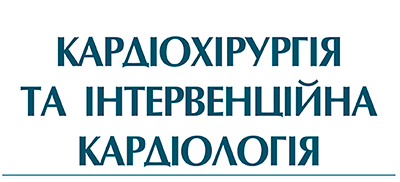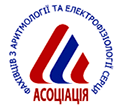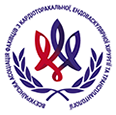Original research
DOI: http://doi.org/10.31928/2305-3127-2019.3.2229
Long-term results of invasive and non-invasive treatment strategies in the elderly patients with acute coronary syndrome
R.R. Komorovsky
I. Horbachevsky Ternopil National Medical University, Ternopil, Ukraine
Cardiovascular Research Foundation, S. Giacomo Hospital, Castelfranco Veneto, Italy
The aim – to evaluate long-term outcomes of conservative (optimised medical therapy) versus revascularization strategy of elderly patients with acute coronary syndrome in a real world practice.
Materials and methods. Prospective analysis of event-free survival of 113 consecutive patients with acute coronary syndrome aged ≥ 70 years. Study end-points: cardiac death, non-fatal myocardial infarction, unstable angina pectoris, re-hospitalisation.
Results. Overall, event-free survival (freedom from death, myocardial infarction, unstable angina or re-hospitalisation) was 59 % at 20 (12–25) months follow-up. The incidence of these events was significantly higher (p = 0.03) in patients receiving only medical therapy compared with those who underwent coronary artery bypass grafting surgery and borderline higher (p = 0.08) compared to percutaneous coronary intervention group patients. The event-free survival rates in both invasively treated groups of patients were not different (p = 0.81). The incidence of soft events, including unstable angina pectoris or re-hospitalisation, was significantly lower in the coronary artery bypass grafting group (р = 0.04) as compared with the medical therapy group, while the incidence of hard events (cardiac death and non-fatal myocardial infarction) was similar in all groups. According to Cox proportional hazard analysis, low ejection fraction (< 40 %) and concomitant peripheral arterial disease were found to be independent predictors of hard events.
Conclusion. Coronary artery bypass grafting in the elderly (aged ≥ 70 years) patients appears to be superior to conservative strategy in terms of event-free survival.
Key words: acute coronary syndrome, elderly, outcome, revascularization.
| [PDF] | [References] |








